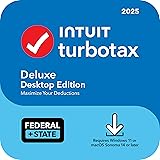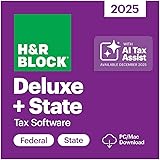Are you looking to get your finances in order but don’t know where to start? Maybe you’ve heard some advice from well-meaning friends or family that just doesn’t seem right. With all of the information out there, it can be hard to know what advice to follow and what to ignore. To help set you on the right path, we’ve compiled a list of the most common money myths and why they don’t work. Use these budgeting tips to take charge of your finances and make smart decisions with your money.
1. You Need to Make More Money to Save Money
One of the biggest money myths is that you need to make more money in order to save money. This simply isn’t true. You can save money no matter how much you make. The key is to create a budget and stick to it. Figure out how much money you need for essentials like housing, food, and transportation. Then, start setting aside money for your savings goals. Even if you can only save a few dollars each week, that adds up over time.
2. You Should Never Use Credit Cards
Another common myth is that you should never use credit cards. While it’s true that using credit cards can lead to debt, that doesn’t mean you should avoid them altogether. Used responsibly, credit cards can be a valuable tool. They can help you build your credit score and earn rewards like cash back or points that can be used for travel. Just be sure to pay off your balance in full each month so you don’t end up paying interest on your purchases.
3. Renting is a Waste of Money
Renting is often seen as a waste of money, but that isn’t always the case. If you plan on moving frequently or aren’t ready to commit to a long-term lease, renting can be a great option. It also gives you the flexibility to live in a more expensive area or nicer home than you could afford if you were buying. And, if something breaks, it’s the landlord’s responsibility to fix it – not yours.
4. You Shouldn’t Invest Until You Have a Lot of Money Saved Up
Many people believe that you shouldn’t invest until you have a large sum of money saved up. But the truth is, you can start investing with very little money. There are plenty of investment options available that don’t require a large upfront investment, such as mutual funds and exchange-traded funds (ETFs). And, if you start investing early, you’ll have more time for your investments to grow.
5. You Need to Keep Up with the Joneses
One of the worst things you can do for your finances is try to keep up with the Joneses – or anyone else for that matter. Just because your friends or neighbors have the latest gadgets or designer clothes doesn’t mean you need them too. Stick to your budget and only buy what you can afford. Not only will this save you money, but it will also help reduce stress and anxiety.
Welcome to our informative series on debunking common money myths and gaining financial literacy. In this section, we will explore the truth behind these myths and how debunking them can lead to smarter financial decisions. Understanding the reality of these misconceptions is crucial for making more informed choices and improving your overall financial well-being.
Financial education is essential in today’s complex world, where money myths can often misguide individuals. By debunking these myths, you can equip yourself with the knowledge needed to make smart financial decisions that align with your goals and aspirations.

Key Takeaways:
- Debunking money myths can lead to smarter financial decisions.
- Financial literacy is crucial for making informed choices.
- Understanding the reality behind common misconceptions is essential for improving your financial well-being.
- Gaining a financial education helps you make smart financial decisions that align with your goals.
- Don’t be swayed by popular money myths; learn the truth and take control of your finances.
Myth #1 – You must carry a balance on your credit card to improve your credit score
One common money myth is the belief that carrying a balance on your credit card is necessary to improve your credit score. However, this is not true. In fact, it is actually better to pay off the entire balance on your credit card each month to avoid paying unnecessary interest charges.
Making on-time payments and maintaining a low or zero balance on your credit card can actually help improve your credit score. This is because your credit utilization ratio, which is the amount of credit you are using compared to your total available credit, plays a significant role in determining your credit score. By keeping your credit card balances low and paying them off in full each month, you can demonstrate responsible credit management and improve your credit score over time.
To further improve your credit score, it is important to manage your credit responsibly by avoiding late payments, only taking on debt that you can afford to repay, and regularly checking your credit report for errors. By debunking the myth that carrying a balance on your credit card is necessary for improving your credit score, you can make smarter financial decisions and improve your overall financial well-being.
“Paying off the entire balance on your credit card each month can help improve your credit score by demonstrating responsible credit management.”
Myth #2 – You should buy a home because renting is like throwing away money
There is a pervasive myth that renting a home is equivalent to throwing away money while buying a home is always a better choice. However, this oversimplification fails to consider the various factors that make renting a viable option for many individuals.
Firstly, renting offers flexibility that homeownership simply cannot match. When you rent, you have the freedom to move to a new location or explore different neighborhoods without the burden of selling a property. This flexibility is especially important for individuals who prioritize mobility or are unsure about their long-term plans.
Additionally, renting often comes with lower costs compared to owning a home. While homeowners have to bear the financial responsibilities of property taxes, maintenance, and repairs, renters typically have these expenses covered by their landlords. This reduces the financial strain on individuals and allows them to allocate funds towards other goals, such as saving for retirement or investing.
Furthermore, renting can provide investment opportunities for individuals who may not have the means or desire to invest in real estate. By renting, individuals can potentially invest their money in other avenues, such as stocks, bonds, or starting a business. This diversification of investments can lead to greater financial security and growth.

Key considerations when choosing between buying and renting:
- Personal circumstances: Assess your current situation and long-term goals to determine if homeownership aligns with your needs.
- Financial stability: Consider your financial stability and ability to afford the costs associated with homeownership, including down payments, mortgage payments, insurance, and maintenance.
- Location: Evaluate the local real estate market and property values to determine if buying a home makes financial sense in your desired area.
- Duration of stay: If you anticipate moving within a few years, renting may be a more practical choice, as the costs of buying and selling a home can outweigh the benefits in a short period.
Remember, it’s essential to make an informed decision based on your unique circumstances and financial goals. While buying a home may be the right choice for some, renting can provide flexibility, lower costs, and investment opportunities that should not be dismissed as simply throwing away money.
| Benefits of Renting | Benefits of Buying |
|---|---|
| Flexibility to move | Building equity |
| No maintenance responsibilities | Property ownership |
| Lower upfront costs | Potential tax advantages |
| Investment opportunities in other areas | Potential for property value appreciation |
Myth #3 – Don’t worry about saving for retirement until you start your career
One common money myth revolves around saving for retirement, suggesting that it can wait until later in one’s career. However, this misconception can have detrimental effects on long-term financial security. It is crucial to understand the importance of starting to save for retirement early and taking advantage of the power of compounding.
Starting to save for retirement as soon as possible allows your investments to benefit from compounding. Compounding refers to the process of generating earnings on both the initial investment and the accumulated interest. Over time, compounding can significantly increase your retirement savings, providing a solid financial foundation for the future.
Another factor to consider is the availability of tax-advantaged retirement accounts. Tax-advantaged accounts, such as Roth IRAs or employer-sponsored 401(k) plans, offer potential tax benefits that can help maximize your savings. These accounts provide opportunities for tax-free growth or tax deductions, depending on the specific type of account and contribution method. By starting early, you can take full advantage of the contribution limits and potential tax benefits offered by these accounts.
It’s important to note that waiting too long to start saving for retirement can limit your options and require larger contributions later in your career. By starting early, you can make smaller, more manageable contributions over a longer period, reducing the financial strain in the future.

The Benefits of Early Retirement Saving
By starting to save for retirement early and taking advantage of compounding and tax-advantaged accounts, you can build a substantial retirement nest egg. Here are some of the key benefits:
- Longer investment horizon: Starting early gives your investments more time to grow, allowing you to potentially accumulate greater wealth.
- Financial security: Building a sufficient retirement fund can provide peace of mind and financial security in your golden years.
- Flexibility and freedom: Having well-funded retirement savings allows you to have more flexibility in your lifestyle choices and pursue your passions.
- Less reliance on social security: By saving early, you can reduce your reliance on social security benefits, which may not be enough to cover all your retirement expenses.
Don’t fall for the myth that you can delay saving for retirement until later in your career. Take advantage of the benefits of starting early, such as compounding and tax-advantaged accounts, to build a solid financial foundation for your retirement. By making saving for retirement a priority from an early stage, you can set yourself up for a comfortable and financially secure future.
Myth #4 – Become debt-free before investing your money
One common myth is that you should become completely debt-free before you start investing your money. While it’s important to manage your debt responsibly, waiting until you are completely debt-free to begin investing may not always be the best approach. It’s essential to strike a balance between paying off debts and saving for the future.
When it comes to managing your debt, it’s crucial to prioritize high-interest debts, such as credit card debt. Paying off these debts can save you money in the long run by reducing the amount of interest you have to pay. However, that doesn’t mean you have to delay all investments until your debts are completely paid off. By adopting a strategic approach, you can simultaneously work towards becoming debt-free and building your investment portfolio.
One strategy is to allocate a portion of your income towards both debt repayment and investment. By making consistent payments towards your debts while also investing a portion of your income, you can make progress in both areas simultaneously. This approach allows you to take advantage of the power of compounding and start growing your wealth sooner rather than later.
It’s important to note that everyone’s financial situation is different, and what works for one person may not work for another. If you have a significant amount of high-interest debt, it may be wise to focus on paying it off before diving into investments. On the other hand, if you have manageable debt levels and the ability to make both debt payments and investments, it’s worth considering a balanced approach that allows you to work towards multiple financial goals simultaneously.
Myth #5 – It’s normal to have high amounts of debt
Debt is a common aspect of many people’s lives, but the idea that high amounts of debt are normal is a misconception. Excessive debt can have a detrimental impact on your financial well-being, causing stress and limiting your ability to achieve your financial goals. It’s important to understand the importance of responsible borrowing and managing debt effectively.
Responsible borrowing means using credit cards and other forms of borrowing wisely, borrowing only what you can afford to repay, and making timely payments to avoid high-interest charges. It’s crucial to assess your financial situation carefully and prioritize your expenses to avoid accumulating excessive debt.
To illustrate the dangers of excessive debt, consider the following table:
| Type of Debt | Interest Rate | Total Debt |
|---|---|---|
| Credit Card A | 18% | $10,000 |
| Credit Card B | 22% | $8,000 |
| Student Loan | 6% | $40,000 |
| Car Loan | 4% | $15,000 |
In this example, the total debt amounts to $73,000. The high interest rates on credit cards A and B can make it challenging for you to pay off the debt quickly, resulting in a significant amount of interest paid over time. It’s essential to keep your debt levels manageable and explore strategies to reduce and eliminate debt whenever possible.
By adopting responsible borrowing habits and avoiding excessive debt, you can take control of your financial future and work towards achieving your long-term goals. Remember, having a healthy financial situation starts with making informed decisions and being mindful of the potential consequences of accumulating high levels of debt.
Myth #6 – Only rich people need a financial advisor
Don’t be fooled by the misconception that only wealthy individuals require the services of a financial advisor. Regardless of your income level, having a financial advisor can provide valuable guidance in navigating various financial topics and achieving your financial goals.
A qualified financial advisor possesses the expertise to help you make informed decisions when it comes to your finances. They can assist you in creating a personalized financial plan, whether it’s planning for retirement, managing your investments, or developing tax strategies that maximize your savings.
With their knowledge and experience, financial advisors can help you navigate complex financial situations, such as planning for major life events or unexpected emergencies. They can provide you with a holistic approach to your financial well-being, ensuring that you have a comprehensive strategy in place that aligns with your goals and risk tolerance.
Working with a financial advisor gives you peace of mind knowing that you have a knowledgeable professional by your side, guiding you through financial decisions and assisting you in making the most of your financial resources. So, no matter what your income level may be, consider the benefits of seeking the expertise of a financial advisor for your financial journey.
By debunking myths, you not only enhance your financial standing but also alleviate financial stress. Stay in control of your finances by applying the personal finance insights, investment advice, and money management tips provided above. This way, you’ll pave the path to financial success!











